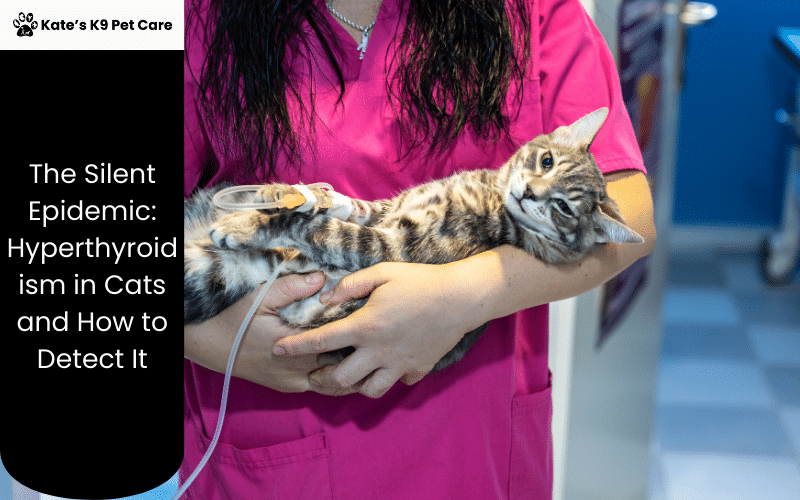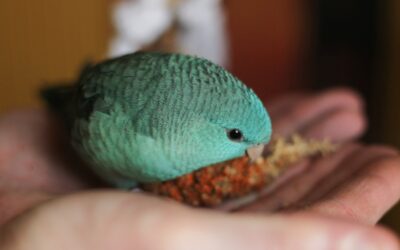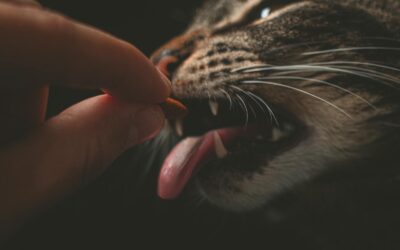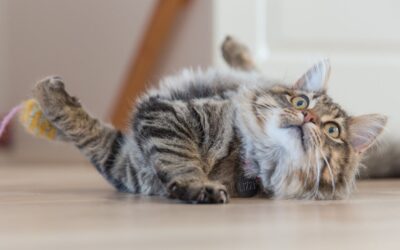Hyperthyroidism in cats is a common endocrine disorder that often leaves cat owners puzzled. If you’re a pet lover or a cat owner, understanding this condition is crucial. This blog post dives deep into hyperthyroidism in cats, its symptoms, treatment options, and how it impacts your feline friend’s overall health.
Introduction to Hyperthyroidism in Cats
Is your cat losing weight despite having an increased appetite? It might be more than just a phase. Hyperthyroidism in cats is a condition where the thyroid glands produce an excessive amount of thyroid hormones. This can lead to various health issues if not diagnosed and managed carefully. This guide will walk you through everything you need to know about hyperthyroidism in cats, from symptoms to treatments and beyond.
What is Hyperthyroidism in Cats?
Hyperthyroidism in cats is an endocrine disorder characterized by the overproduction of thyroid hormones, specifically thyroxine (T4) and triiodothyronine (T3), by the thyroid glands. These glands, located in the neck, play a crucial role in regulating metabolism and energy. When the thyroid gland becomes overactive, it releases excessive amounts of these hormones into the bloodstream, leading to a variety of metabolic disturbances. The condition is most commonly caused by benign tumors known as adenomas, but in rare cases, it can result from malignant tumors. Cats with hyperthyroidism often exhibit increased heart rates, hypertension, and a heightened appetite coupled with significant weight loss. Understanding the condition is imperative for diagnosing and managing it effectively, ensuring that affected cats can maintain a good quality of life.

The Role of Thyroid Glands in a Cat’s Life
The thyroid glands play a vital role in a cat’s overall health and well-being. Located in the neck, these small, butterfly-shaped glands are responsible for producing and secreting hormones like thyroxine (T4) and triiodothyronine (T3). These thyroid hormones are crucial for regulating the cat’s metabolism, which affects almost every cell in the body.
Metabolic Regulation
One of the primary functions of the thyroid glands is to regulate the cat’s metabolism. The thyroid hormones control how the body converts food into energy, which in turn influences the cat’s energy levels, weight, and overall vitality. An optimal metabolic rate is essential for maintaining a healthy weight and ensuring that the cat has ample energy to engage in daily activities.
Growth and Development
Thyroid hormones also play a significant role during the growth and developmental stages of a cat’s life. They influence the development of the skeletal and nervous systems, ensuring that the cat grows strong and healthy. A deficiency or excess of thyroid hormones during these critical periods can lead to developmental issues and long-term health problems.
Cardiovascular Health
The thyroid glands affect heart function by regulating the cat’s heart rate and blood pressure. The hormones produced help maintain a steady heart rate and ensure proper blood circulation throughout the body. Any imbalance in thyroid hormone levels can lead to cardiovascular issues, such as hypertension or tachycardia, which can be harmful to the cat’s overall health.
Temperature Regulation
Another important role of thyroid hormones is thermoregulation, the ability to maintain and regulate body temperature. Cats rely on their thyroid glands to keep their body temperature within a healthy range, allowing them to adapt to different environmental conditions. Proper thermoregulation is critical for preventing hyperthermia or hypothermia, which can be life-threatening if not addressed promptly.
Digestive Function
Thyroid hormones influence the speed and efficiency of the digestive process. They help regulate the motility of the gastrointestinal tract, ensuring proper digestion and absorption of nutrients. This is essential for maintaining a healthy appetite and preventing gastrointestinal issues such as constipation or diarrhea.
By understanding the multifaceted roles of the thyroid glands, cat owners can better appreciate the importance of these glands in maintaining their feline friend’s health. Regular veterinary check-ups and early detection of thyroid imbalances can go a long way in ensuring a cat’s well-being throughout its life

Clinical Signs of Hyperthyroidism
The signs of hyperthyroidism in cats can vary, but the most common symptom is weight loss despite an increased appetite. Other signs include hyperactivity, vomiting, diarrhea, and an unkempt coat.
Diagnosing Hyperthyroidism
Diagnosing hyperthyroidism involves blood tests to measure thyroid hormone levels. A complete blood count and liver enzymes are also checked to assess your cat’s overall health.
Causes of Hyperthyroidism
Several factors can contribute to the development of hyperthyroidism in cats. Understanding these can help in managing and possibly preventing the condition.
Abnormal Thyroid Tissue
Hyperthyroidism often results from abnormal thyroid tissue. This can be due to nodules or lumps forming within the thyroid gland, causing it to become overactive.
Environmental Risk Factors
Certain environmental risk factors and diet may contribute to a cat developing hyperthyroidism. Exposure to certain chemicals or a diet high in iodine can be potential triggers.
Age and Genetics
Older cats are more susceptible to hyperthyroidism, and there may be a genetic component that makes some cats more prone to developing the condition.
Symptoms of Hyperthyroidism
Recognizing the symptoms early can make a significant difference in managing hyperthyroidism in cats. Here are some key symptoms to watch for:
Weight Loss and Increased Appetite
One of the most common symptoms is significant weight loss despite an increased appetite. Hyperthyroid cats will eat more but lose weight rapidly.
Hyperactivity and Behavioral Changes
Affected cats often become hyperactive and may show changes in behavior. They could become more restless and show signs of anxiety.
Physical Changes
Look for physical signs like an unkempt coat, excessive shedding, and an enlarged thyroid gland that may feel like a lump in the cat’s neck.
Health Complications
Hyperthyroidism can lead to several other health complications if not treated promptly. Here are a few to be aware of:
Heart Disease
Thyroid hormones affect heart function, and elevated levels can lead to cardiac complications. This includes increased heart rate and high blood pressure.
Kidney Disease
There is a strong link between hyperthyroidism and kidney function. Untreated hyperthyroidism can lead to chronic kidney disease, affecting your cat’s quality of life.
Liver Disease
Elevated thyroid hormones can also impact liver function, leading to increased liver enzymes and potential liver disease.

Treatment Options
Several treatment options are available to manage hyperthyroidism in cats. Choosing the right one depends on your cat’s specific needs and overall health.
Radioactive Iodine Therapy
Radioactive iodine therapy is a popular treatment for hyperthyroidism. The iodine destroys the overactive thyroid tissue, helping to normalize hormone levels.
Anti-Thyroid Drugs
Oral medications can manage thyroid hormone levels effectively. These drugs are a good option for cats that cannot undergo surgery or radioactive iodine treatment.
Surgical Removal
Surgical thyroidectomy involves the removal of the affected thyroid gland. It is a permanent solution but comes with its own set of risks and potential complications.
Managing Hyperthyroidism
Managing hyperthyroidism involves more than just treatment. It requires ongoing monitoring and lifestyle adjustments to ensure your cat remains healthy.
Regular Blood Tests
Frequent blood tests are vital to monitor thyroid hormone levels and adjust treatment as needed. This helps in keeping the condition under control.
Dietary Changes
Dietary therapy, including an iodine-restricted diet, can help manage hyperthyroidism. Consult your vet for the best dietary options for your cat.
Monitoring Kidney Function
Since hyperthyroidism affects kidney function, regular monitoring of kidney health is essential. This includes checking for signs of chronic kidney disease.
Living with a Hyperthyroid Cat
Living with a cat diagnosed with hyperthyroidism requires adjustments but is entirely manageable. Here’s how to ensure your cat leads a healthy, happy life.
Creating a Comfortable Environment
Ensure your home environment is stress-free and comfortable for your cat. This helps in reducing hyperactivity and stress-induced symptoms.
Consistent Medication Routine
Stick to a consistent medication routine if your cat is on anti-thyroid drugs. This helps in maintaining stable thyroid hormone levels.
Regular Vet Visits
Frequent veterinary check-ups are crucial for monitoring your cat’s condition and adjusting treatments as necessary. Early intervention can prevent complications.
The Importance of Early Detection
Early detection of hyperthyroidism can significantly improve your cat’s prognosis. Regular vet visits and being attentive to symptoms can make a world of difference.
Screening Older Cats
Regular screening for hyperthyroidism in older cats can lead to early diagnosis and treatment, improving their quality of life.
Educating Yourself
Educate yourself about the signs and symptoms of hyperthyroidism. The more you know, the better you can care for your feline friend.
Community Support
Join pet owner communities for support and advice on managing hyperthyroidism. Sharing experiences can provide valuable insights and tips.

Conclusion
Hyperthyroidism in cats is a common yet manageable condition. By understanding the symptoms, causes, and treatments, you can ensure your feline friend remains healthy and happy. Early detection and regular monitoring are key to managing this condition effectively. For personalized advice and treatment options, consider booking a consultation with your veterinarian.
Stay informed, stay proactive, and give your cat the best care possible. For more resources and support, don’t hesitate to reach out to our community of pet lovers and experts.
By following these guidelines and staying vigilant, you can successfully manage hyperthyroidism in your beloved cat and help them lead a fulfilling life.
Kate’s K9 Pet Care Services is here to bring you anything you need from the pet store, or we provide pet taxi services to the vet and much more!







